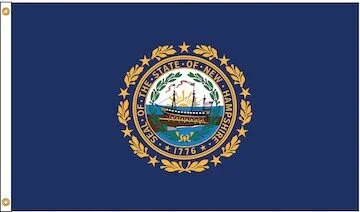50 State Undue Influence Project: New Hampshire Undue Influence Expert Definitions
In an effort to provide a better understanding for what undue influence expert psychologists look for when forming opinions about whether undue influence occurred in the execution of a will, trust, beneficiary designation, or other contractual document, I am highlighting the statutes, case law, and jury instructions specific to all 50 states. Each will be in its own blog post. Twenty-ninth up, New Hampshire.
Whitman v. Morey, 63 N.H. 448, 453 (1885):
Undue influence, which will void a will, is not merely persuasion, but the use of such appliances and influence as to take away the free will of the testator – to substitute another’s will for his; so that the instrument is not the expression of the wishes and determination of the testator in the disposal of property, but those of another; that, to officiate the will, the influence must amount to force and coercion, destroying free agency.
Bartlett v. McKay, 80 N.H. 574, 574 (1923):
Undue influence of a will occurs when a person coerces or improperly influences the testator into making the will.
If an unequal will distribution is caused by the testator’s greater love for one than another, that is not undue influence.
In re: Estate of Cass, 143 N.H. 57 (1998):
Generally, a court considers all the circumstances surrounding a disposition, including the relationship between the parties, the physical and mental condition of the donor, the reasonableness and nature of the disposition, and the personalities of the parties.
The influence that a done exerts over a donor must amount to force or coercion that alters the donor’s will and must be more than the mere influence of affection (citing Bartis v. Bartis, 1966).
Boardman v. Woodman, 47 N.H. 120 (1866):
Undue influence is not merely the influence of affection and attachment, or merely the desire of gratifying the wishes of another.
In re: Estate of McIntosh, 146 N.H. 474, 479 (2001):
If one family member believes they are entitled to more money than another person, that does not show undue influence.
Cornwell v. Cornwell, 116 N.H. 205, 209, 356 A.2d 683, 686 (1976):
A confidential relationship exists if there is evidence of a family relationship in which one person justifiably believes that the other will act in his or her interest.
Archer v. Dow, 489 A2d 574 (N.H. 1985):
In cases where the done acts in a fiduciary capacity to the donor, the done has the burden of proving an absence of undue influence.
